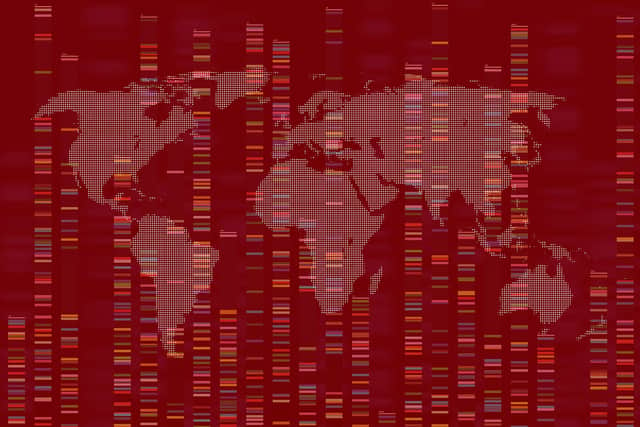Covid-19: expert says UK must ‘remain vigilant’ despite WHO declaring the end of the pandemic is ‘in sight’
and live on Freeview channel 276
The UK will still need to take the threat of Covid-19 seriously, a professor has said, despite the World Health Organisation declaring the end of the pandemic is in sight.
The WHO made the announcement after weekly deaths from coronavirus around the world were at their lowest level since March 2020.
Advertisement
Hide AdAdvertisement
Hide AdHowever Martin Michaelis, professor of molecular medicine at the University of Kent, told NationalWorld that this claim comes with “big ifs”. He explained that Covid is “still an acute emergency in many places in the world”, which “we will need to keep taking it seriously for the time being”.
There is also a risk that new Covid variants will emerge that are more deadly than the currently circulating ones, Prof Michaelis added.


What did the World Health Organisation say?
The director general of WHO, Dr Tedros Adhanom Ghebreyesus, told a press conference: “We have never been in a better position to end the pandemic – we are not there yet, but the end is in sight.”
He said the WHO is releasing six short policy briefs that outline the key actions that all governments should take now “to finish the race”.
Advertisement
Hide AdAdvertisement
Hide Ad“We can end this pandemic together, but only if all countries, manufacturers, communities and individuals step up and seize this opportunity,” he added.
The documents include guidance on testing, vaccination, best practice of managing the disease, maintaining infection control measures in health facilities, preventing the spread of misinformation and community engagement.
One of the papers said: “With access to and appropriate use of existing life-saving tools, Covid-19 can become a manageable disease with significantly reduced morbidity and mortality.”
But it added that the virus still poses an “acute global emergency” and that “transmission of the virus continues to be robust”.
Advertisement
Hide AdAdvertisement
Hide Ad“Repeated disease waves and the emergence of new variants continue to present risks and challenges,” added the document.
‘We do not know whether the future will bring further significant Covid outbreaks’
Prof Michaelis said a definite answer on how Covid will evolve, what this will mean for the course of the current pandemic and the development of the virus in the future cannot yet be provided.
He explained that mutations occur randomly so there is an element of chance, or luck - bad or good - involved.
Prof Michaelis said if we are lucky, “we will get away without another variant that causes major disruptions,” but if we are unlucky then “a deleterious variant may emerge that causes a lot of trouble again”.
Advertisement
Hide AdAdvertisement
Hide AdThe WHO’s statement that the end is “in sight” comes with “big ‘ifs’”, Prof Michealis added, the first being that Covid is not yet over and “is still an acute emergency in many places in the world”, which “we will need to keep taking it seriously for the time being”.
Prof Michaelis said the second “if” is that “we need to remain vigilant”. He explained that the world has learned to “alleviate the impact of Covid”, in particular in countries with highly developed health care systems like the UK, with therapies available for patients suffering from severe disease and vaccines that protect us “to some extent” from infection and from “the worst consequences of Covid”.
But the immune protection provided by vaccines and previous infections “wanes relatively quickly”, he added, which means “we will become more vulnerable to Covid again”.
There is also a risk that new Covid variants will emerge that are more deadly than the currently circulating ones, Prof Michaelis said.
Advertisement
Hide AdAdvertisement
Hide AdIf this does happen, the UK will be able to “minimise the damage” if it detects such variants early, controls their spread, and updates vaccines accordingly.
Keeping Covid “on the radar” and having “effective surveillance systems” will increase chances to avoid future significant disruptions due to Covid, he added.
It will also therefore be important to achieve a high vaccine coverage around the world to “protect everyone and to reduce the likelihood that novel dangerous variants emerge,” Prof Michaelis said.
It must also be taken into consideration that Covid is “most likely here to stay”, so if nothing unforeseen happens the virus will continue to circulate in humans “for the foreseeable future”, he added.
Advertisement
Hide AdAdvertisement
Hide AdThe virus will then most likely pose an “ongoing threat”, but most of the time it will likely be associated with mild disease, said the professor.
On a final note, he added: “It currently looks as if the end of the Covid pandemic is in sight. However, we do not know whether the future will bring further significant Covid outbreaks that will be associated with many severe cases and deaths.
“If we remain vigilant, however, and maintain proper surveillance systems and act swiftly in response to new variants, we can prevent or at least minimise further devastating outbreaks.”
Comment Guidelines
National World encourages reader discussion on our stories. User feedback, insights and back-and-forth exchanges add a rich layer of context to reporting. Please review our Community Guidelines before commenting.
